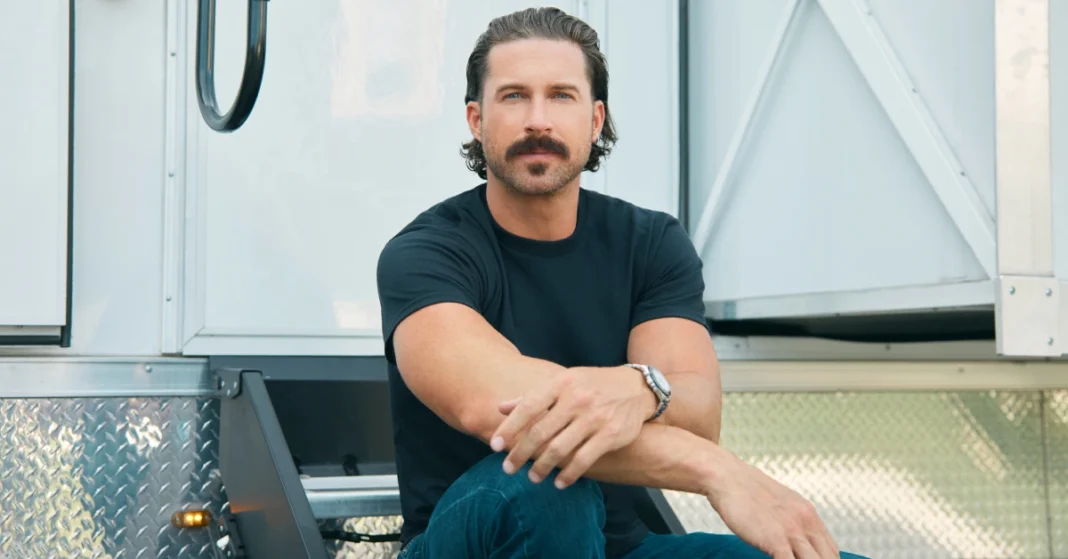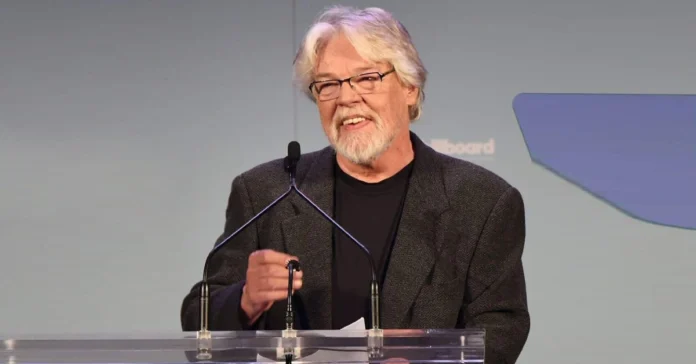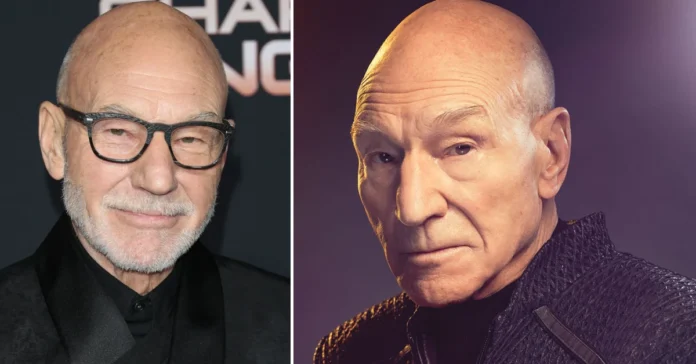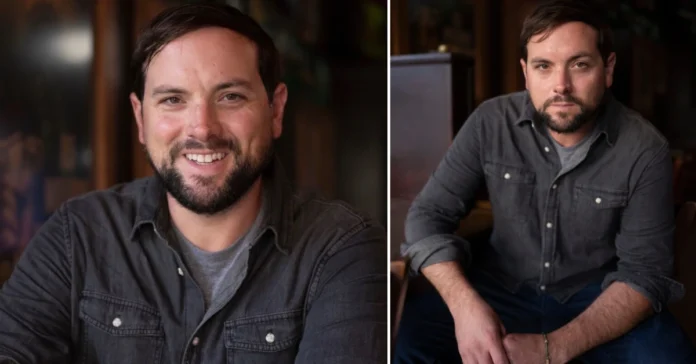Country music thrives on authenticity, and few artists embody that spirit quite like Riley Green. At 36 years old, this Jacksonville, Alabama native has turned personal stories into chart-topping hits, connecting with millions through songs that feel like conversations with an old friend.
Who Is Riley Green?
Riley Green represents everything country music fans love about the genre. Born on October 18, 1988, in Jacksonville, Alabama, he’s a singer-songwriter who crafts lyrics from real experiences rather than manufactured moments. His music blends traditional country sounds with modern production, creating something both familiar and fresh.
Standing at 6’4″ with a warm Southern drawl, Green carries himself with the confidence of someone who knows exactly where he came from. He’s not trying to be Nashville’s next manufactured star. Instead, he’s the guy who still hunts with his buddies, runs a bar in Music City, and writes songs about the life he lives.
His breakthrough came after years of grinding through honky-tonks and county fairs. Today, Riley Green stands as one of country music’s most genuine voices, with multiple platinum singles and a growing collection of awards that prove authentic storytelling still wins.
Early Life in Jacksonville, Alabama
Jacksonville shaped Riley Green in ways that show up in every song he writes. This small college town gave him deep roots and real stories. His grandfather, Buford Green, ran Golden Saw Music Hall, where Riley first experienced live music up close. Picture a 10-year-old kid watching local bands play on Saturday nights, soaking in the magic of performance.
Riley’s parents, Karen and Keith Green, encouraged their son’s musical interests while keeping him grounded. They bought him his first guitar when he turned 10, though nobody expected it would lead to sold-out arenas. Back then, music was just another activity, like baseball practice or fishing trips.
Growing up in rural Alabama meant long summer days, family gatherings, and traditions passed down through generations. These experiences would later fuel songs that resonate with anyone who remembers Sunday dinners at grandma’s house or learning life lessons from their elders.
The Green family valued hard work and humility. Riley spent weekends helping his grandfather at the music hall, learning not just about performance but about connecting with people. Those early lessons stuck with him through every stage of his career.
Football Dreams and the Shift to Music
Before country music claimed him, Riley Green chased different dreams on the football field. As quarterback for Jacksonville State University, he showed the same determination that would later drive his music career. College football in Alabama means everything, and Riley threw himself into the sport completely.
The transition from football to music wasn’t immediate. After his college football days ended, Riley found himself at a crossroads. Music had always been there, waiting in the background. He started playing local venues, testing whether his songs could connect with audiences beyond family and friends.
CMT’s reality show “Redneck Island” became an unexpected turning point in 2013. Competing on the show introduced Riley to a wider audience and proved he could handle pressure in front of cameras. More importantly, it confirmed what he already suspected – entertaining people felt more natural than anything else he’d tried.
That reality TV experience taught valuable lessons about the entertainment industry. Riley learned to stay true to himself while adapting to new situations. Those skills would prove essential when Nashville came calling.
Finding His Voice: First EPs and Nashville Breakthrough
Riley Green’s musical journey started with small steps. His self-titled EP in 2013 marked the beginning of something real. Playing shows across Alabama and neighboring states, he built a following one fan at a time. These weren’t glamorous gigs – think county fairs, local bars, and anywhere else that would let him plug in his guitar.
The grind paid off slowly. Each show taught him something new about stage presence and audience connection. Riley developed his sound during these years, blending traditional country instrumentation with lyrics that spoke to modern experiences. He wasn’t trying to reinvent country music – just tell his stories honestly.
Big Machine Label Group recognized something special in 2018. The signing represented validation for years of hard work, but Riley knew a record deal meant nothing without great songs. His first major label release, “There Was This Girl,” proved he belonged on country radio.
The song climbed the charts steadily, eventually reaching number one. Success felt sweeter because Riley had earned it through persistence rather than overnight luck. Nashville finally had a new voice that sounded both timeless and current.
Breakout Singles & Chart Success
“There Was This Girl” opened doors, but “I Wish Grandpas Never Died” kicked them wide open. Released in 2019, this deeply personal song struck a chord with listeners everywhere. Riley wrote it thinking about his grandfathers, never expecting it would become his signature hit.
The song’s success came from its universal truth. Everyone who’s lost a grandparent understood those lyrics. Radio stations couldn’t keep up with listener requests. The track went double platinum, proving that honest emotion still matters in country music.
Collaborations with Luke Combs and Thomas Rhett expanded Riley’s reach. These partnerships felt natural – just friends making music together. The duet with Thomas Rhett on “Half of Me” showcased Riley’s versatility, while working with Luke Combs reinforced his traditional country credentials.
Awards & Nominations
Recognition followed success. The Academy of Country Music nominated Riley for New Male Artist of the Year in 2020. While he didn’t win that first nomination, it marked his arrival among country music’s elite. The nominations kept coming, each one confirming what fans already knew – Riley Green was here to stay.
The Man Behind the Music: Personal Life & Passions
Strip away the stage lights and sold-out venues, and Riley Green remains remarkably unchanged from his Jacksonville days. His grandfathers’ influence shows up everywhere, from his songwriting to his hobbies. Both men taught him that success means nothing without character.
The Duck Blind, Riley’s Nashville bar, reflects his personality perfectly. It’s not some celebrity vanity project but a genuine hangout where you might find him behind the bar on a Tuesday night. The venue combines his love for hunting, music, and bringing people together.
Family remains central to everything. Riley talks about his parents and sister with the same pride he shows when discussing platinum records. He’s dated in the public eye but keeps those relationships relatively private, understanding that some things deserve protection from spotlight glare.

Hunting and fishing aren’t just hobbies – they’re connections to home. Riley often writes songs during long hours in a deer stand or while waiting for fish to bite. These quiet moments away from the music industry chaos keep him grounded and creative.
On Stage: Tours, Live Shows & Fan Connection
Live performance separates real artists from studio creations, and Riley Green thrives in concert settings. His shows feel like massive tailgate parties where everyone’s invited. From the American Rodeo debut to headlining tours, he brings the same energy whether playing for 500 or 50,000 people.
The Houston Livestock Show and Rodeo marked a career milestone. Playing this legendary venue meant joining country music royalty. Riley treated that massive crowd like friends at a backyard barbecue, proving that authenticity scales to any size audience.
International festival appearances introduced Riley’s music to new markets. European country fans embraced his traditional sound, surprised to find an American artist who hadn’t abandoned the genre’s roots. These overseas shows reinforced that good stories translate across cultures.
Fan connection drives everything. Riley stays after shows for meet-and-greets, remembering that every ticket represents someone choosing his music over countless other options. That appreciation shows during performances, creating an energy exchange that makes each show unique.
Recent Projects & What’s Next for Riley Green
The 2023-2025 period shows an artist hitting his stride. Recent albums display growing confidence and refined songwriting. Riley’s learned to balance radio-friendly singles with deeper album cuts that reward careful listening.
“Worst Way” became a viral sensation, proving Riley could adapt to modern promotion while maintaining his traditional sound. The song’s success on streaming platforms introduced him to younger audiences who might have missed his earlier work.
Rumored collaborations keep fans guessing about future directions. Riley’s shown willingness to work across country subgenres while maintaining his core identity. Whether partnering with established stars or championing newcomers, he approaches each project with genuine enthusiasm.
New tour dates sell out faster each year. Riley’s team struggles to keep up with demand, upgrading venues and adding shows to accommodate growing audiences. The trajectory points toward headlining stadiums, though Riley insists smaller venues will always have a place in his schedule.
Why Riley Green Matters in Today’s Country Scene
Country music faces constant identity crises, pulled between tradition and innovation. Riley Green found a sweet spot that honors both. His success proves audiences still crave authentic storytelling delivered without gimmicks or pretense.
Young artists study Riley’s career path, seeing a blueprint for building lasting success. He didn’t chase trends or compromise his sound for quick hits. Instead, he trusted that good songs and genuine performance would find their audience.
The Southern troubadour tradition lives through artists like Riley. He carries forward the legacy of country singers who wrote about real life, performed with heart, and treated fans like extended family. In an era of manufactured personas, his authenticity stands out.
Riley Green’s impact extends beyond chart positions and award ceremonies. He reminds the industry that country music’s power comes from connection – between artist and audience, between songs and experiences, between tradition and progress. As long as artists like Riley keep telling true stories, country music’s future looks bright.
His journey from Jacksonville State’s football field to country music stardom proves that authentic voices still matter. Riley Green isn’t just another country singer – he’s a reminder that the best songs come from real life, and the best careers build on genuine connection rather than calculated moves.




